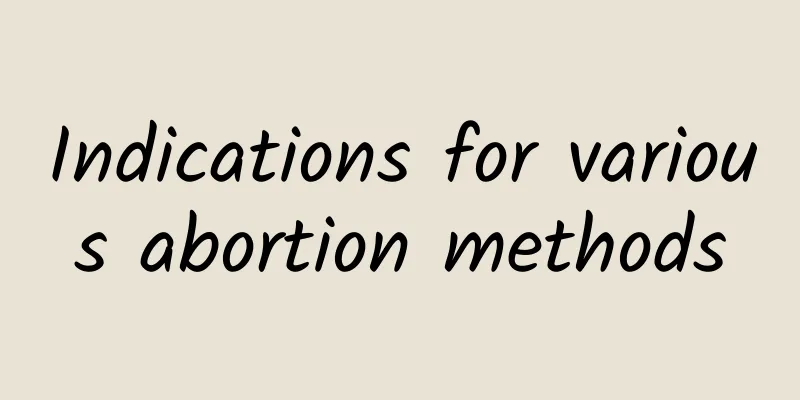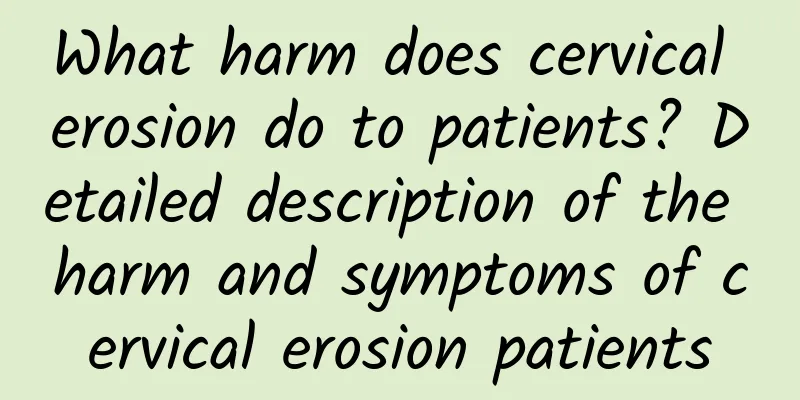Do cervical polyps require surgery? Generally, surgical treatment

|
In recent years, the incidence of cervical polyps has been on the rise. Cervical polyps are a common gynecological disease. That is, polyps occur in the cervix of the uterus. When there is a slight touch, there will be bleeding symptoms and it is very easy to be infected. Therefore, if cervical polyps are not treated in time, ulcers will form. At present, there are many treatments for cervical polyps. So is it okay to not have surgery for cervical polyps? It is best for patients with cervical polyps to undergo surgery. Generally speaking, surgical resection is the main treatment for cervical polyps. When patients with cervical polyps are accompanied by inflammation, they can take Western medicine. First, the inflammation and infection should be controlled, and when there are bleeding symptoms, hemostasis treatment should be done in time. After surgical removal of cervical polyps, patients need to undergo pathological examination of the polyps. If the polyps show signs of malignancy, they must be hospitalized and receive correct treatment as soon as possible. Cervical polyps are a disease that is prone to recurrence, so even after surgical removal, regular follow-up examinations are required. Patients with cervical polyps need to undergo a lot of gynecological examinations before undergoing surgical removal. If patients with cervical polyps have acute inflammation, or have symptoms of bleeding, or edema, or even symptoms of erosion, there will be purulent secretions and pain, so surgical treatment should be taken as soon as possible. Can I treat cervical polyps without surgery? Cervical polyps are best treated with surgical removal. Cervical polyps are divided into benign and malignant. Through surgical treatment, pathological examination of the polyps can be performed to confirm whether they are benign or malignant. And the current treatment for cervical polyps is mainly surgical removal. |
<<: Vaginal bleeding other than menstruation may be caused by inflammation
>>: Can you get pregnant with chronic cervicitis? 3 treatments to recover
Recommend
What medicine can cure endometritis and pelvic inflammatory disease faster?
Endometritis and pelvic inflammatory disease usua...
Protruding belly and skyrocketing weight, beware of false hunger and learn 6 ways to overcome it
Are you always troubled by the circles of fat on ...
What symptoms may indicate an ectopic pregnancy?
Ectopic pregnancy is a very dangerous disease. We...
Why did I get pelvic inflammatory disease before giving birth?
Regarding the causes of pelvic inflammatory disea...
Drinking grapefruit green tea can greatly improve your weight loss ability? Doctor: Mother soup~ Be careful of these risks
Many people try to lose weight by eating fruits. ...
What medicine is good for left adnexitis?
Treatment of left adnexitis requires the selectio...
Can B-ultrasound detect hyperprolactinemia?
Hyperprolactinemia (HPRL) is a common reproductiv...
What can I eat to prevent ovarian cysts?
Ovarian cysts are a common female disease and can...
What injection can prevent menstruation?
If you want to avoid menstruation by injection, y...
Can chocolate cysts be treated with strenuous exercise?
Patients with chocolate cysts should not engage i...
Prevention of chronic pelvic inflammatory disease includes several aspects
We need to be particularly aware of the preventio...
What is the differential diagnosis of ovarian cysts? What are the symptoms of ovarian cysts?
What is the differential diagnosis of ovarian cys...
Treatment of irregular menstruation of liver depression and qi stagnation type with Chinese herbal decoction
Aunt Lin, 47, has an enviable career, but a regre...
What are the hazards of a woman's first abortion? Four common hazards of a woman's first abortion
There is a very worrying phenomenon in society no...
Hyperprolactinemia surgical cure rate
How high is the cure rate of hyperprolactinemia s...









